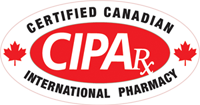Pharmacist Corner
How to safely manage daily
prescription medications
Many people, especially as they age, find themselves on one or more "maintenance" medications - prescriptions that are taken every day for chronic health care conditions such as high blood pressure, high cholesterol, and other common ailments.
Taking your medications properly is extremely important to your health. In fact, many visits to the doctor or hospital can be avoided simply by adhering to your medication routine, and avoiding some common errors that can occur in using daily medications. Here are a few tips to help you use your prescriptions safely and effectively:
Know the names of each medication you take. First and foremost, make sure you know the name of every prescription you are currently taking. Remember that many medications have two names - the brand name and the generic name (also known as the "active ingredient" name). You don't need to remember both names - either one will be recognized by doctors, nurses, pharmacists, and other health care providers. But it is important to have a written list of each medication you take, and be sure to list each medication just one time, using the brand name or the generic name.
Know what each medication is used for. Understanding why you take a specific medication is also important. This will help you remember to take it each day, and will remind you to discuss it with your doctor if it doesn't seem to be working effectively. If you're not absolutely clear why you're taking a specific prescription, how and when you should take it, ask your doctor or the pharmacist.
Take the medication exactly as prescribed. In order for the medication to work most effectively, it needs to be taken exactly as prescribed. This refers to how often and what time of day you take it, whether or not you can eat foods with the medication, and if there are specific foods or beverages you should - or should not - eat or drink at the same time. The prescription bottle should have this information, and you can ask your health care provider or pharmacist. To learn more about how to use medications correctly, visit the Institute for Safe Medication Practices to read their helpful brochure.
Make sure all your doctors know all the medications you are taking. Patients often see multiple doctors, including general practitioners and a variety of specialists. Every doctor you see needs to be aware of every medication you are taking - the medication name, dosage amount, and how frequently you take it. This helps the doctor provide the best care, and avoid potential conflicts between different prescriptions given by different doctors. Any time you start taking a new medication or discontinue an existing prescription, be sure to tell each of your doctors on your next visit.
Carry a written list of all your prescriptions with you. If you're taking multiple medications, it can be hard to remember all their names and dosages. Therefore, it's important to have a written list of all your current medications, and to carry this list with you in your wallet or purse to share with your healthcare providers. Your list should also include any dietary supplements, such as vitamins, that you take - these can interfere with some medications, so they need to be discussed with your health care provider as well. You can create your prescription list yourself, or ask your pharmacist to print out a list for you. In fact, the pharmacist's list can also include directions for how to properly use each medication.
Ask the pharmacist. The U.S. Food and Drug Administration has additional tips to avoid medication mistakes, which you can find online here. Of course, if you ever have questions regarding your medications, you can always call and ask your CIPA pharmacist for assistance. We are experts and can also coordinate with your doctors if necessary, to always provide you with the best medical care.

